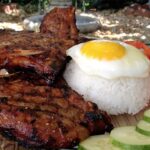Refueling on a Very Low-Carb Diet
The U.S. Department of Agriculture’s Dietary Guidelines for Americans recommend getting 45 to 65 percent of your daily calories from carbs. That amount is generally enough to keep the glycogen stores in your muscles and liver full — especially if you’re consuming some carbohydrates during and after long workouts. On a 2,000-calorie diet, for example, that’s between 225 and 325 grams (g) of carbs daily. The National Academies of Sciences, Engineering, and Medicine recommends that you consume at least 130 g of carbs per day, based on the average minimum amount of glucose used by the brain.
But some low-carb diets recommend scaling your carbohydrate consumption back to 50 or fewer grams per day. These plans include the Atkins 20 diet and some versions of the ketogenic diet.
The issue: These diets don’t provide enough carbs to fully restore liver or muscle glycogen, says Dave Bridges, PhD, an associate professor of nutritional sciences at the University of Michigan School of Public Health. And actually, the body doesn’t need to produce much glycogen at this point, because it shifts into ketosis — a state in which the body runs off a different fuel source consisting of ketones. Ketones are compounds your body naturally produces by breaking down its own fat when too little external glucose is available and the body can’t produce enough glucose to keep up, according to StatPearls.
When carb intake is low, Bridges says, the body (primarily via the liver) also produces a small amount of glucose through a process called gluconeogenesis, using amino acids, lactase, and glycerol instead of carbohydrates. As carbohydrate restriction continues, the body switches to ketogenesis to also make ketones, while gluconeogenesis continues at a steady rate to supply tissues that still require glucose, according to research.
“When you’re in ketosis, the liver takes the fat and very quickly turns it into ketone bodies for the heart and the brain and the muscles to use for fuel,” Bridges says.
Humans can certainly function in ketosis. Though the science isn’t definitive as to whether that functioning is more or less efficient in this state, preliminary reports indicate low-carb intake isn’t necessarily beneficial. The International Olympic Committee (IOC) issued a statement on relative energy deficiency in sport — the phenomenon of athletes whose health and performance are affected by low energy availability compared to how much they work out.
In the statement, the IOC notes that athletes who restricted carbohydrate intake experienced negative effects on blood tests related to bone health, immune function, and iron levels, even if they didn’t show symptoms of low energy availability. In a study, endurance athletes on a low-carb, high-fat diet for about three-and-a-half weeks showed signs that bone remodeling at rest and in the three hours after exercise was negatively affected.
After exercise, these athletes also showed elevated levels of a chemical marker in the blood that’s connected to chronic inflammation, compared to athletes who ate a high-carb diet. The IOC notes that multiple studies have shown that low-carb intake has negative effects on athletes’ energy availability, but that more long-term research is needed.
For shorter or easier workouts, the glycogen produced through gluconeogenesis is generally enough to keep athletes feeling fast and strong, Bridges says. But for longer or harder sessions — like endurance bike rides or marathon runs — it’s not adequate. “Scientists are learning that a ketogenic diet is either bad for your athletic performance or at the very least, not good,” he says. “With this particular diet, the body just can’t keep up with the demand on energy for really long workouts.”
If you do choose to follow a ketogenic diet while working out regularly, it’s important to eat enough fat and protein to make up for your low carbohydrate intake, says Amy Goss, PhD, a registered dietitian and associate professor of nutrition sciences at the University of Alabama at Birmingham. Otherwise, you’d take in too few calories and send your body into a starvation state, which could cause you to feel lethargic and weak.
If you’re committed to a very low-carb diet, be sure to consume ample amounts of healthy fats, including nuts and seeds, olive oil and avocado, says Goss. And don’t forget to include lots of leafy greens and proteins alongside healthy fats, she says. You aren’t restoring glycogen unless you eat enough total calories to support gluconeogenesis, but you’re providing fat calories to use for ketone fuel.






![Easy Veggie-Loaded Quesadillas [Vegan] – One Green Planet](https://top-100-recipes.com/wp-content/uploads/2026/02/Veggie-Quesadillas--150x150.jpg)


